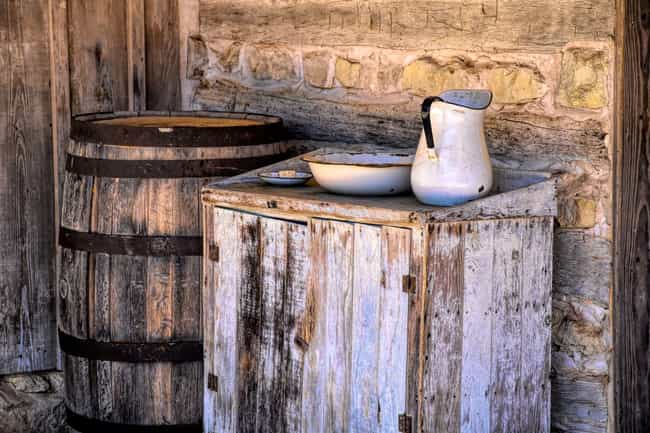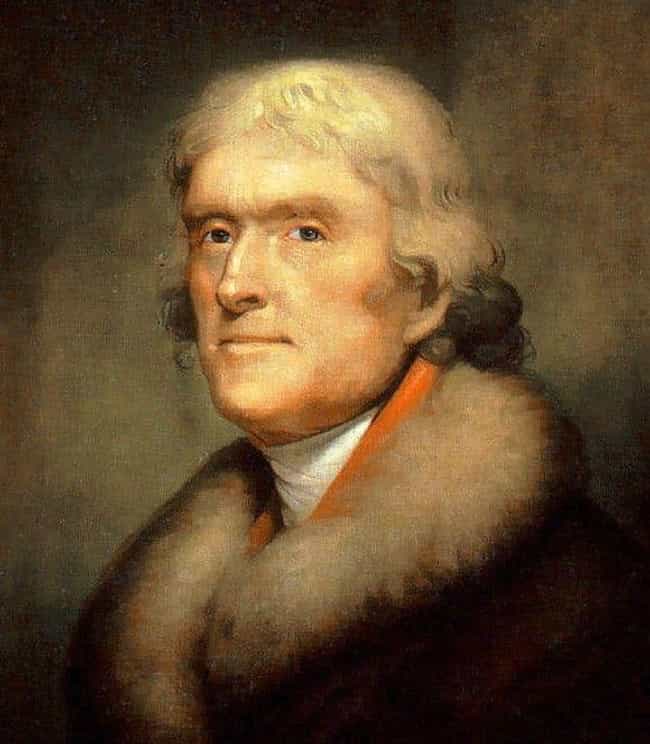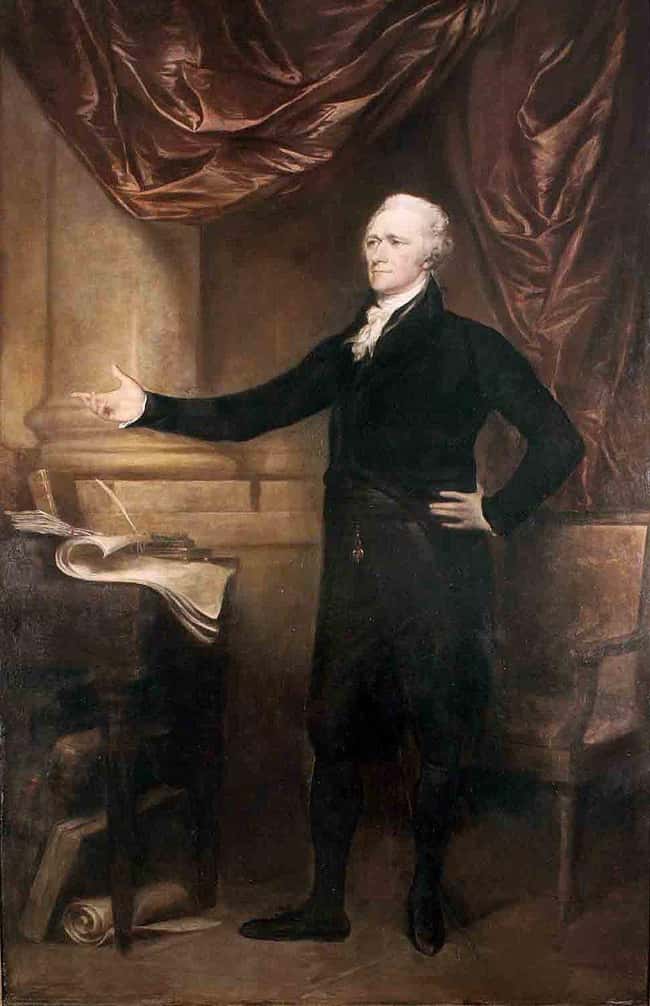More On: Coronavirus
Joe Biden Tests Positive for Wuhan Coronavirus Again
Aaron Rodgers, Green Bay Packers Fined for Violating COVID-19 Protocols
Shailene Woodley Defends Aaron Amid Rumored COVID-19 Quarantine Outings
Howard Stern: Aaron Rodgers Should Be Fired for 'Bulls--t' Vaccine Comments
Emilio Estevez Denies Being Anti-Vax After Exiting 'Mighty Ducks' Series
These days the minimal bathing routine includes a shower or bath, brushing one’s teeth and hair, and washing one’s face. Most of us have access to running water and indoor toilets, but what if we didn’t? Or didn’t believe in using water to bathe? A scant 200 years ago, our founding fathers’ hygiene habits were anything but …
These days the minimal bathing routine includes a shower or bath, brushing one’s teeth and hair, and washing one’s face. Most of us have access to running water and indoor toilets, but what if we didn’t? Or didn’t believe in using water to bathe? A scant 200 years ago, our founding fathers’ hygiene habits were anything but standardized.
The level of hygiene for our founding fathers was entirely dependent on their personal views of cleanliness. George Washington and John Adams loved bathing. Thomas Jefferson and John Adams dictated their personal standards of cleanliness to their daughters. On the other end of the spectrum, Ben Franklin preferred to stand disrobed by the window and give his body a good airing out. Whether or not his neighbors’ preferences aligned with his own is a matter lost to history.
George Washington Was Pro-Bathing

General George Washington spent a lot of time away from home during the American Revolution, and he realized that in order to keep the environment disease-free for himself and his soldiers, healthy guidelines needed to be set in place.
Washington believed that clothing should be changed several times a week, hands should be washed frequently, proper bathroom facilities should be used, and faces and feet washed. Washington was afraid of illness ravaging the camps due to unclean conditions, so he often lobbied Congress to help improve it.
Thomas Jefferson Washed His Feet In Cold Water Every Morning

Thomas Jefferson habitually washed his feet in cold water every morning. In two separate letters, one to a friend and one to a physician, the writer of the Declaration of Independence claimed that he never caught colds because of this morning ritual.
But Jefferson was not a fan of warm water. In fact, he believed that bathing in “warm or hot mineral water brought out boils.”
George Washington Was A Fan Of Cologne
The first President of the United States was fond of a particular scent from Caswell-Massey, an apothecary still in business today.
The cologne, Number Six, is described as a strong musk with notes of citrus, neroli, bergamot, rosemary, and amber. George Washington liked the cologne so much he gave a crate of it to the Marquis de Lafayette.
Jefferson Invented An Indoor Toilet
Thomas Jefferson was quite the inventor. One of his inventions was an indoor toilet that looked similar to a box, where the waste would collect in a drawer for his servants to remove.

When Jefferson built his residence, Monticello, three small privies were in the blueprints. The toilets were not much bigger than a modern toilet seat and all drained down to a common tunnel. Two were located in the stairwells and one inside his bedroom. Jefferson referred to them as “air closets” and they did not utilize any running water.
Benjamin Franklin Shook His Bits Out The Window During His Morning Air Baths
A swimmer in his youth, Benjamin Franklin was fond of physical activity, and occasionally invented new ways to exercise. Part of his daily routine included airing out his body for 30 to 60 minutes, depending on the weather, in front of a window in his home.

Despite the fact that the norm at the time was to use cold water for bathing, Franklin said he preferred to “bathe in another element… cold air.” Franklin would often spend this time reading or writing.
John Adams Threatened To Boil His Own Daughters Should They Ever Get Filthy
John Adams had a big problem with the hygiene of women. In an essay, he complained about women whose teeth, necks, hair, and body odor were incredibly foul.
He concluded that if his own daughters should ever smell or appear half as dirty, then he would personally toss them into boiling water and clean them.
Alexander Hamilton Credited Clean Laundry With Staying Disease-Free

Illnesses spread like wildfire during colonial times. Various items and practices were believed to keep the environment clean of sickness, including smoke, washing the walls with a vinegar solution, carrying around scented packets, and shoving garlic up one’s nose. To the benefit of the olfactory senses of those around him, Alexander Hamilton believed that fresh laundry was the best way to prevent the transmission of diseases.
Before a visit to his father-in-law in 1793, Hamilton sent a message noting the ways in which he had quarantined himself and laundered his “personal linens.” He claimed that washing the clothing rendered it completely clean and disease-free.






















